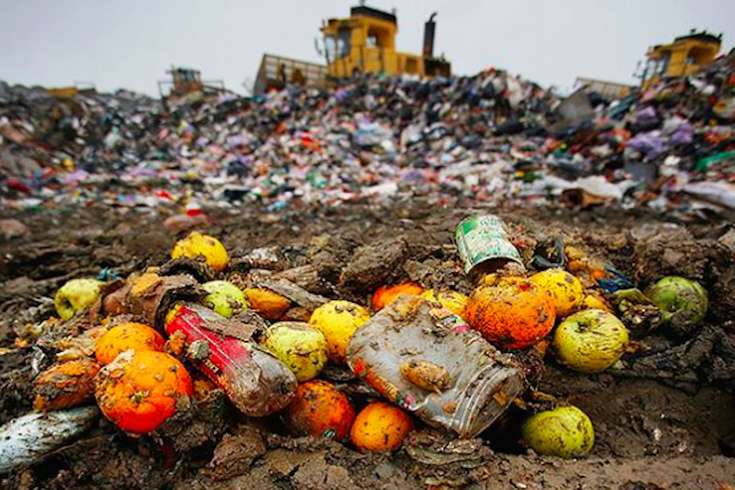
March 09, 2015
 @SandroDemaio /Twitter
@SandroDemaio /Twitter
A third of all food is wasted, an amount that totals $400 billion each year.
Food waste costs the global economy billions each year and produces harmful greenhouse gases that impact climate change.
A report published in February by the U.K.-based Waste & Resources Action Program (WRAP) found that the world could save $120 billion to $300 billion each year by 2030 if countries made an effort to reduce their food waste.
A third of all food is wasted, an amount that totals $400 billion each year, according to the report. The research suggests that as the global middle class expands over the course of the decade, the cost could rise to $600 billion.
“Reducing food waste is good for the economy and good for the climate,” Helen Mountford, global program director for the New Climate Economy, said in a statement for WRAP. “These findings should serve as a wake-up call to policymakers around the world.”
The astonishing scale of global #foodwaste. #sustainablelifestyles pic.twitter.com/7Krfs1Y93k
— WRAP (@WRAP_UK) February 26, 2015
WRAP encourages governments and businesses to develop food waste prevention plans throughout the entire supply chain, as it could not only save money, but also the environment.
Reducing food waste has clear benefits for climate change mitigation. An astonishing 7% of all global greenhouse gas emissions (GHGs), or 3.3 billion tonnes per year, are due to food waste. WRAP estimates that by 2030 GHGs could be lowered by at least 0.2 and possibly as much as 1 billion tonnes per year through food waste reductions.
The report highlights practical changes, such as designing better packaging or lowering the average temperatures of refrigerators, which can make a significant difference in preventing spoilage. With better refrigeration equipment, approximately 25 percent of food waste in the developing world could be eliminated.
Read the full report.